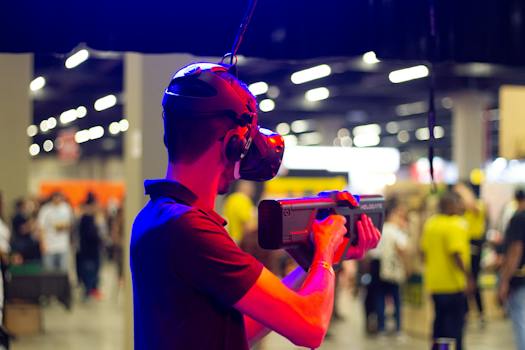

-
Table of Contents
"Unveiling the Veil: Journey into the Depths of Perception"
Introduction
Introduction:
"Exploring the Illusion of Reality: A Dive into Subjective Perception" is a thought-provoking study that delves into the concept of reality and how it is perceived subjectively by individuals. This exploration aims to challenge our conventional understanding of reality and shed light on the various factors that shape our subjective experiences. By examining the intricate relationship between perception, cognition, and the external world, this study seeks to unravel the complex nature of reality and the illusions that may arise from our subjective interpretations. Through this exploration, we hope to gain a deeper understanding of the human experience and the profound impact that subjective perception has on our lives.
The Role of Perception in Shaping Our Reality
Perception is a fundamental aspect of human experience, shaping our understanding of the world around us. It is through perception that we interpret and make sense of the information our senses provide. However, what if our perception is not an accurate representation of reality? What if it is merely an illusion, a subjective interpretation of the external world?
The role of perception in shaping our reality is a topic that has fascinated philosophers, psychologists, and scientists for centuries. It is widely accepted that our perception is not a direct reflection of reality but rather a construction of our minds. Our brains take in sensory information and process it, creating a subjective experience that we perceive as reality.
One of the key factors influencing our perception is our past experiences. Our brains are constantly making connections between new information and existing knowledge, allowing us to make sense of the world. This process, known as top-down processing, can lead to biases and distortions in our perception. For example, if we have had negative experiences with dogs in the past, we may perceive a friendly dog as a threat, even if it poses no real danger.
Another factor that shapes our perception is our expectations. Our brains are constantly making predictions based on past experiences, and these predictions can influence how we perceive new information. This phenomenon, known as perceptual set, can lead us to see what we expect to see, rather than what is actually there. For example, if we are told that a certain painting is a masterpiece, we may perceive it as more beautiful and meaningful than if we had no prior expectations.
Our emotions also play a significant role in shaping our perception. Research has shown that our emotional state can influence how we perceive and remember events. For example, if we are in a positive mood, we may perceive neutral stimuli as more positive, while if we are in a negative mood, we may perceive the same stimuli as more negative. This phenomenon, known as affective priming, highlights the subjective nature of our perception.
Furthermore, our cultural and social backgrounds can also influence our perception. Different cultures have different norms, values, and beliefs, which can shape how individuals perceive and interpret the world. For example, in some cultures, eye contact is seen as a sign of respect and attentiveness, while in others, it may be seen as disrespectful or confrontational. These cultural differences can lead to variations in perception and understanding of social cues.
It is important to recognize that our perception is not an objective representation of reality but rather a subjective interpretation. This understanding has significant implications for how we interact with others and make decisions. By acknowledging the role of perception in shaping our reality, we can become more open-minded and empathetic, recognizing that others may have different perspectives and interpretations of the world.
In conclusion, perception plays a crucial role in shaping our understanding of reality. Our perception is not a direct reflection of the external world but rather a construction of our minds. Factors such as past experiences, expectations, emotions, and cultural backgrounds all influence how we perceive and interpret the world. By recognizing the subjective nature of our perception, we can foster a greater understanding and appreciation for the diversity of human experiences.
Unveiling the Illusion: Examining the Limits of Human Perception

Exploring the Illusion of Reality: A Dive into Subjective Perception
Perception is a fundamental aspect of human existence. It is through our senses that we interact with the world, forming our understanding of reality. However, what if our perception is not as objective as we believe it to be? What if our perception is merely an illusion, shaped by our subjective experiences and biases? In this article, we will delve into the concept of subjective perception, examining the limits of human perception and the implications it has on our understanding of reality.
To begin our exploration, it is crucial to understand that our perception is not a direct reflection of reality. Instead, it is a construction of our brain, piecing together information from our senses to create a coherent representation of the world. This construction is heavily influenced by our past experiences, cultural background, and personal beliefs. As a result, what we perceive as reality is, in fact, a subjective interpretation of the external world.
One of the most striking examples of subjective perception is the phenomenon of optical illusions. These visual tricks deceive our brains into perceiving something that is not actually there. From the famous Müller-Lyer illusion, where two lines of the same length appear different due to the addition of arrows, to the ambiguous Necker cube, which can be perceived as rotating in different directions, these illusions highlight the malleability of our perception. They demonstrate that our brains are not passive receivers of information but active interpreters, constantly making assumptions and filling in gaps to create a coherent picture.
Moreover, our perception is also limited by the range of our senses. While we may believe that we perceive the world in its entirety, the reality is that our senses are limited to a narrow band of information. For instance, we can only see a small portion of the electromagnetic spectrum, known as visible light. Beyond that, there are vast realms of reality that remain invisible to us, such as ultraviolet or infrared light. Similarly, our sense of hearing is limited to a specific range of frequencies, and we are unable to perceive sounds that fall outside this range.
Furthermore, our perception is also influenced by cognitive biases, which are inherent tendencies to think and interpret information in certain ways. These biases can lead to distortions in our perception, causing us to see what we expect or want to see, rather than what is actually there. For example, confirmation bias leads us to seek out information that confirms our preexisting beliefs, while the availability heuristic causes us to overestimate the likelihood of events based on their ease of recall. These biases can significantly impact our understanding of reality, as they shape the way we interpret and remember information.
The implications of subjective perception are far-reaching. It challenges the notion of an objective reality and raises questions about the nature of truth. If our perception is merely a construction of our subjective experiences, can we ever truly know what is real? Furthermore, subjective perception has profound implications in fields such as psychology, where understanding the limitations and biases of human perception is crucial for accurate diagnosis and treatment.
In conclusion, our perception is not a direct reflection of reality but a subjective interpretation shaped by our experiences, biases, and the limitations of our senses. Optical illusions, cognitive biases, and the narrow range of our senses all contribute to the illusion of reality that we perceive. Acknowledging the subjective nature of our perception is essential for a deeper understanding of ourselves and the world around us. It challenges us to question our assumptions, be open to different perspectives, and strive for a more nuanced understanding of reality.
Beyond the Senses: Exploring the Subjective Nature of Reality
Exploring the Illusion of Reality: A Dive into Subjective Perception
Beyond the Senses: Exploring the Subjective Nature of Reality
Reality, as we perceive it, is often considered an objective truth, an unchanging and concrete representation of the world around us. However, upon closer examination, it becomes clear that reality is not as fixed as it may seem. In fact, our perception of reality is highly subjective, shaped by our individual experiences, beliefs, and biases. This article delves into the fascinating concept of subjective perception, shedding light on the illusory nature of reality.
To understand the subjective nature of reality, we must first acknowledge the role our senses play in shaping our perception. Our senses act as a filter through which we experience the world, allowing us to interpret and make sense of the information we receive. However, what we perceive is not an accurate representation of the external world but rather a construction of our own minds.
One of the most striking examples of subjective perception is the phenomenon of optical illusions. These visual tricks deceive our senses, making us see things that are not actually there. From the famous Müller-Lyer illusion, where two lines of equal length appear different due to the addition of arrows, to the ambiguous figure of the Necker cube, which can be perceived in multiple ways, these illusions highlight the malleability of our perception.
But it is not just our senses that shape our perception of reality. Our beliefs, values, and cultural backgrounds also play a significant role. These factors act as filters, influencing how we interpret and make sense of the world around us. For example, a person with a strong religious belief may interpret a natural disaster as an act of God's wrath, while a scientist may view it as a result of natural processes. These differing interpretations demonstrate how subjective perception can lead to vastly different understandings of the same event.
Furthermore, our biases and preconceived notions can also distort our perception of reality. Confirmation bias, for instance, leads us to seek out information that confirms our existing beliefs while disregarding or dismissing contradictory evidence. This tendency to selectively perceive information reinforces our subjective view of reality, making it difficult to objectively evaluate new information or alternative perspectives.
Subjective perception also extends beyond individual experiences to collective perceptions. Social constructs, such as gender, race, and class, shape our understanding of reality on a societal level. These constructs influence how we perceive and interact with others, often leading to stereotypes and prejudices. The subjective nature of these perceptions becomes evident when we consider how societal norms and expectations differ across cultures and time periods.
While the concept of subjective perception challenges the notion of an objective reality, it does not imply that reality is entirely arbitrary or meaningless. Rather, it suggests that reality is a complex interplay between our individual and collective experiences, beliefs, and biases. Recognizing the subjective nature of our perception allows us to approach reality with a sense of humility and openness, acknowledging that our understanding is limited and subject to change.
In conclusion, the illusion of reality is a captivating concept that invites us to question our assumptions and explore the subjective nature of our perception. Our senses, beliefs, biases, and cultural backgrounds all shape our understanding of reality, highlighting its malleability and subjectivity. By embracing the idea of subjective perception, we can cultivate a deeper appreciation for the diversity of human experiences and foster a more nuanced understanding of the world around us.
Q&A
1. What is "Exploring the Illusion of Reality: A Dive into Subjective Perception" about?
"Exploring the Illusion of Reality: A Dive into Subjective Perception" is a book or study that delves into the concept of subjective perception and examines the idea that reality may be an illusion.
2. What is the main focus of "Exploring the Illusion of Reality: A Dive into Subjective Perception"?
The main focus of "Exploring the Illusion of Reality: A Dive into Subjective Perception" is to explore the idea that our perception of reality is subjective and may not accurately reflect the true nature of the world.
3. What does "Exploring the Illusion of Reality: A Dive into Subjective Perception" aim to achieve?
"Exploring the Illusion of Reality: A Dive into Subjective Perception" aims to challenge our understanding of reality and provoke critical thinking about the nature of perception and its influence on our understanding of the world.
Conclusion
In conclusion, exploring the illusion of reality and delving into subjective perception reveals the complex nature of human experience. Our perception of reality is influenced by various factors such as our senses, emotions, and cognitive processes. This subjectivity highlights the limitations and biases inherent in our understanding of the world. By acknowledging the illusion of reality, we can gain a deeper appreciation for the diversity of human perspectives and strive for a more nuanced understanding of the world around us.












